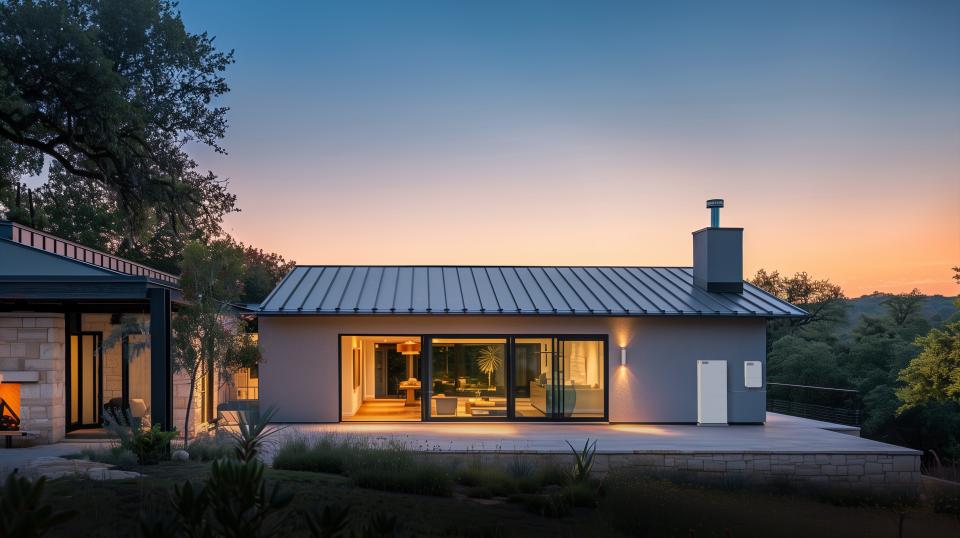Zach Dell (yes, that Dell) wants to address Texas power grid instability with new startup
- Oops!Something went wrong.Please try again later.
Dell is a name so powerful in Austin that it and the Fortune 500 company of the same name are practically synonymous with the city and its tech identity.
The Dell legacy will soon be expanding. After a successful spell as an investor, Zach Dell — son of Michael Dell — is looking to blaze his own trail with new energy startup, Base Power.
While the company is undoubtedly an opportunity to grow his own legacy, Base Power's already impressive team of dynamic talent, also led by co-founder Justin Lopas, should not be ignored.
"No. 1, the company is not about me. The company is about solving a challenging problem with really smart people," Dell said. "I'm really lucky to work with Justin and work with the rest of our team of incredible engineers and operators."
With lofty goals, innovative tech and no shortage of funding, the company seems primed to make waves in the next 12 months.

What is Base Power and how could it help Texas grid instability?
As winters are becoming more chaotic and summers even more blistering, power grid failures are now a looming threat across the state. For Dell and Lopas, this problem isn’t just one that Texans live with — it’s one they wanted to solve.
“The grid is a techno operational and economic challenge and requires a really diverse set of skill sets.” Lopas said. “Between the two of us, we certainly don't have all of them, but we're building out a team that certainly does.”
Base Power has turned to distributed battery storage as a way of backing up the existing grid while still keeping costs low for customers. What makes the idea unique is that the battery storage system is able to run without connecting to solar panels.
This makes Base Power the only licensed energy provider in Texas to offer all-in-one monthly energy service, home battery and installation without the requirement of solar panels.
Because of this, the company is operating in deregulated parts of Central Texas, mostly Austin suburbs, and the rollout is already underway.
“If you live in Texas, the last five years have been pretty painful when it comes to power,” Dell said. “Your electricity has gotten more expensive and less reliable — but we're here to change that.”
How does Base Power's energy work?
For customers of Base Power, the process is fairly simple. After installation, the batteries will work as a fail-safe during times of severe weather and high demand when the power grid can often get overwhelmed.
The upfront cost is a one-time fee of $2,000 to cover installation, and Base offers fixed monthly pricing for electricity that varies by location but, according to the Base Power team, is often cheaper than existing energy companies. Quotes for your area can be found on the Base Power website.
In an interview with the Statesman, Dell and Lopas explained that Base Power purchases 20 kilowatt-hour white-label batteries. They operate and maintain the batteries, which, after installation, work in conjunction with the existing grid. When the grid is working effectively, the Base Power battery will improve grid stability. When the grid goes down, Base Power will protect customers’ homes from power outages.
“By developing and deploying our own battery system, enabled by our custom software, we're able to provide our customers with backup power when the grid goes out and use the systems to load-balance the power grid when it's up and running,” Dell said.
Investment and a talented team could yield results soon
Base Power has no shortage of talent. It boasts a team made up of engineers and operators from companies such as SpaceX, Tesla and Apple.
Lopas, who formerly worked at Space X, said that the flatter company structure of the startup provides exciting opportunities for creative engineers like himself.
“We are trying to build a culture around a very low level of bureaucracy or sort of chain of command,” Lopas said. “Instead, we want to have a meritocracy, where the best idea wins every time.”
Since starting the company last year, Dell has been busy securing investment partners and is pleased with the capital that the young company has to work with.
“This is a capital-intensive endeavor, and it's going to require a lot of capital, and we're prepared to build that kind of business — so we're well capitalized and ready to go,” Dell said.
Among the investors in the new company are Thrive Capital, Valor Equity Partners and Altimeter Capital.
When talking timeline and scalability, Lopas and Dell think the technology and team are already in place to expand. Those things, combined with the capital, mean that the next 12 months could be a period of swift growth for the startup.
Ahead of an important summer for the company, Dell outlined the areas where he hopes his team can introduce the product.
“We're ready to grow aggressively, so for customers in the Austin area — Pflugerville, Round Rock, Hutto, Elgin, Killeen and Taylor — we are ready to bring them onto the platform and go provide them with affordable, reliable power.”
Beck Andrew Salgado covers trending topics in the Austin business ecosystem for the American-Statesman. To share additional tips or insights with Salgado, email Bsalgado@gannett.com.
This article originally appeared on Austin American-Statesman: Dell legacy grows as startup Base Power rethinks energy in Texas

